(April 5, 2022) The year at a training programme in Brazil was nothing short of a lifetime opportunity for Shaji Thomas. Little did the Kerala-born environmentalist know that in the dense forests of Amazon, he would find a home. In the past 32 years, Shaji has risked his life on numerous occasions, to not only save the tropical rainforests but also for the upliftment of over 60 communities living in the heart of the region. Despite the struggles, he wouldn’t want it any other way.
“I intended to stay in this country only for a year when I arrived at Sao Paulo in 1989. But I could never return, and that is one decision I will always be proud of,” shares the environmentalist, who lives in Belém, Brazil, during an interview with Global Indian.
A green panther
Growing up in Ramapuram village of the Kottayam district of Kerala, Shaji was third of the six kids in the family. His father was a local politician and his mother, a housewife. Home tutored in the initial years of his life, the environmentalist was brilliant with numbers. “I even passed the Indian Sainik School entrance exam, but my mother was not in favour of sending me far away,” he shares, adding that nature intrigued him even as a child. But he equally enjoyed school. “I was a good student and participated in scouts and guides and NCC. We had agricultural land on which we grew cocoa, rubber, coffee, coconut, paddy and pepper,” says Shaji.
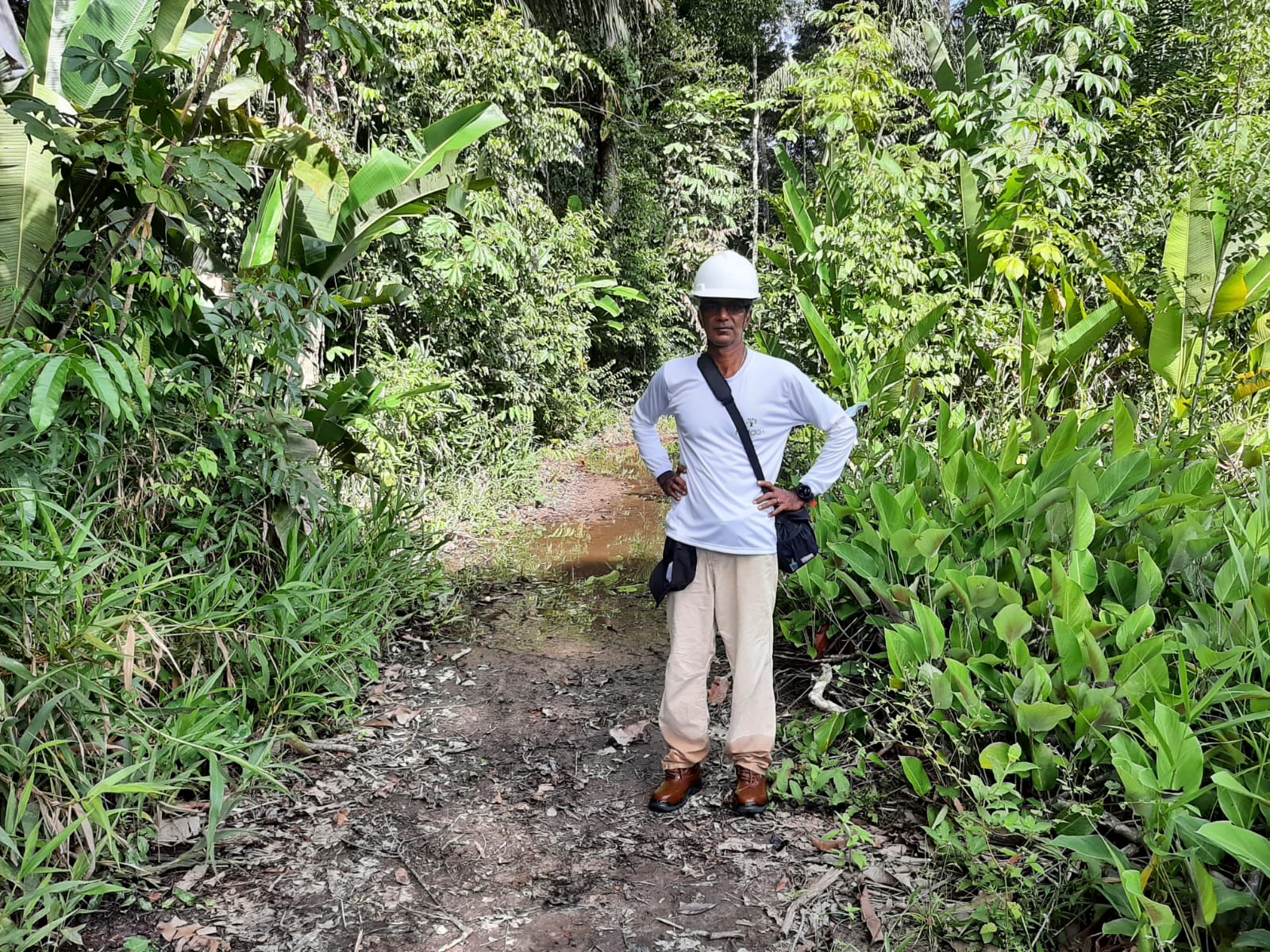
Shaji Thomas
However, when his father asked him to join local politics, he packed his bags and left for Mysuru University to pursue social science, politics and economics. At the same time, he received a degree in philosophy from the Institute of Vidyaniketan in Mysuru. “During college, I got an opportunity to visit Odisha, where I lived with tribal communities,” adds Shaji.
Upon his graduation, he got the opportunity to do a year of an overseas training programme in Sao Paulo by the Religious Institution Society of Divine Work. With no direct flight to Brazil from India at that time, he spent a week travelling to his destination. “No one came to pick me up and I didn’t have enough money to pay for a cab. Almost no one spoke English and I didn’t know Portuguese. Fortunately, a taxi driver took mercy on me and dropped me at the institute,” reveals the environmentalist.
Guardian of the forest
Although it was his dream, Shaji found Brazil “very strange” in the beginning. From falling sick after gulping down a cup of caipirinha, which he thought to be a juice to learning Portuguese from a Japanese teacher, he had his share of peculiar moments.
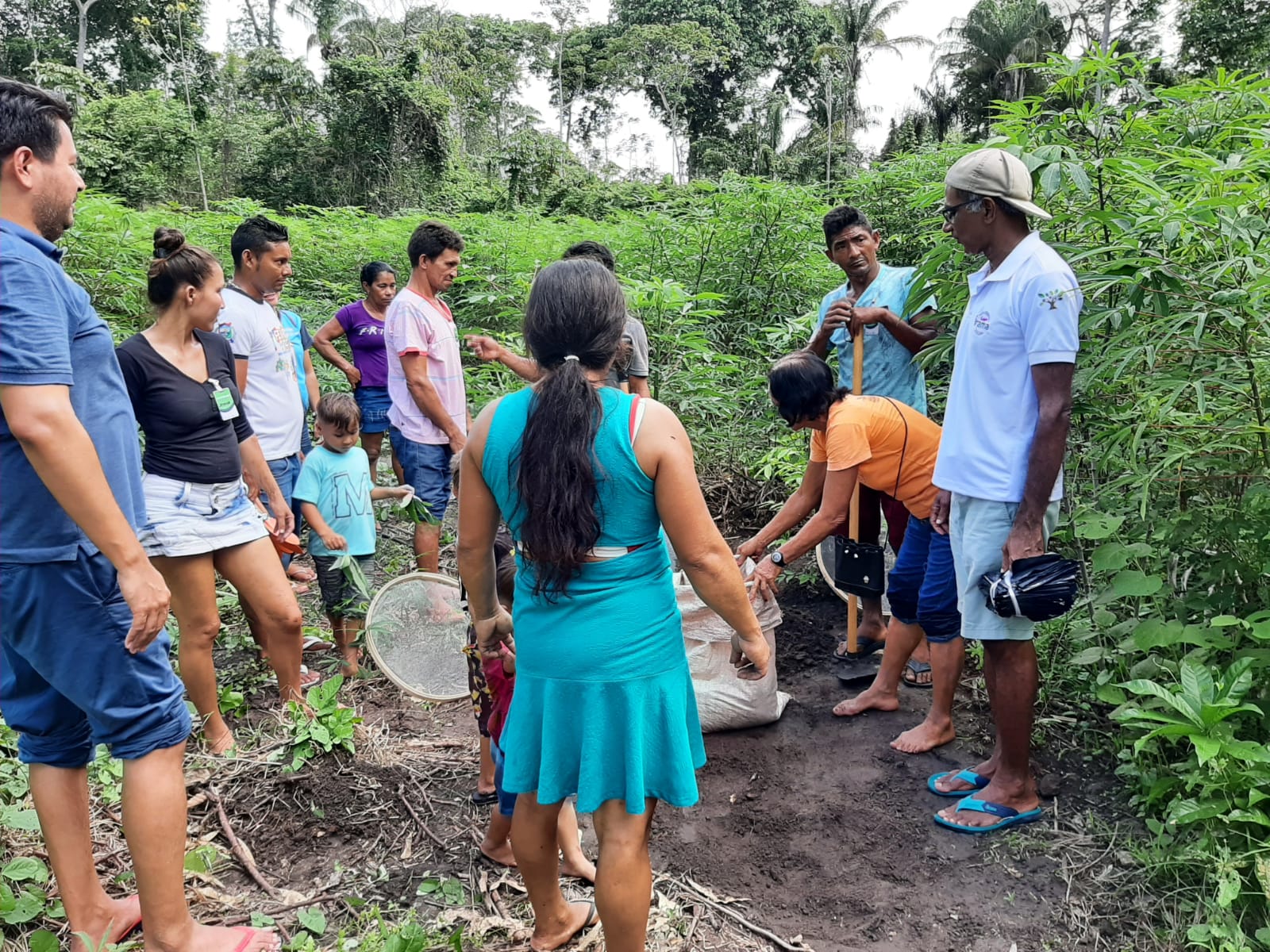
Shaji during a forestation event
But it was his institute’s involvement in social movements across Brazil that piqued his interest and understanding of the issues faced by various communities. He, too, dived into one of the largest movements in Latin America, Landless Workers’ Movement which “changed” his life. Upon completion of his training, the institute invited him to study theology, and he decided to stay.
In 1991, Shaji visited Amazon for a vacation, which took him four hours by plane and 12 hours by boat to reach. “I was visiting the Quilombola community, who are people of Afro-descent. I had heard stories about their hostility towards visitors. However, my experience was completely different. Their chief invited me over dinner and offered me the first plate of food – which is a mark of respect,” he says.
That’s when he learnt about the several issues faced by the communities. “Most of Brazil is covered by the Amazon forest and many of the communities living here are Afro-descendants. At one point, their forefathers used to own these lands, but now these people are harassed by the land, mining, drugs, and timber mafia. They grab their land, and make them work for free. They do not have clean water, electricity, education, or even access to a medical centre,” divulges the environmentalist.
In 1993, he returned to the Amazon forests to fight for the rights of indigenous people and environmental conservation. For the next six years, he lived on a boat in the Amazon river, visiting various communities and helping them in matters of land conflict.
Mafia, violence and gunshots
Though the environmentalist is happy living with his family in Brazil, the journey was not all peachy. Working with over 60 communities, fighting for their rights, while protecting the forest got Shaji in trouble with people, including the land and wood mafia. He wasn’t only threatened but also attacked by them. “A few times the timber mafia even tried to sink my boat, but I was lucky to escape,” says Shaji. Few of his friends, including famous Brazilian activist Dorothy Stang, however, weren’t as lucky as him and were shot by the forest mafia. “I worked with Dorothy in the same organisation for the protection of Amazon’s residents. Her death was a big blow, but we knew we couldn’t stop fighting,” shares the activist.
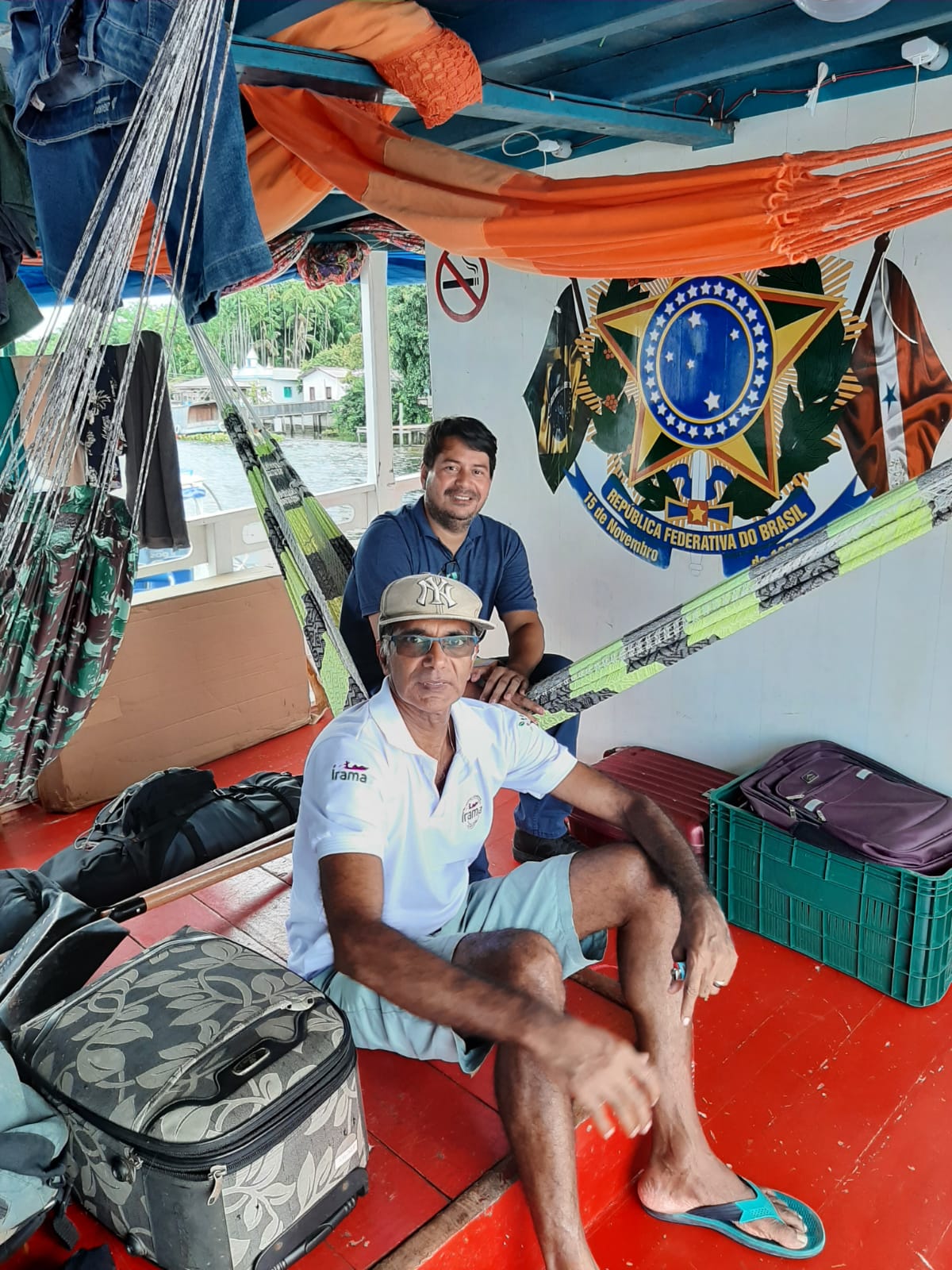
Shaji Thomas
Though he continued to fight for the locals, his status as a foreigner often worked against him. “To prove to them that I wasn’t going to go away, I took Brazilian citizenship in 2003,” says Shaji. Realising that understanding the law of the land will help him serve these communities better, Shaji decided to pursue law at the Estácio do Pará College in Belém in 2007.
Miles to go…
After three decades, Shaji continues to work with the communities. Living in Belém, with his wife Elysangela Pinheiro, a Brazilian lawyer, a 17-year-old son Santosh and four-year-old daughter, Sofia, Shaji feels there is still more to be done. “Until 2002 these people had no help from the government. While the situation was getting better after Luiz Inácio Lula da Silva came to power, the subsequent governments have not worked for the betterment of these communities. There are no measures in place to control the land grabbing. Several hydroelectric projects have been established in Amazon, due to which the region’s massive biodiversity — the largest in the world — is going underwater,” he explains.

Shaji with his family
Currently he is working as a researcher at the Federal University of Pará, in natural resource management and climate change. He has been conducting several forestations drives and workshops on legal awareness for the indigenous communities. In his free time, he loves to tend to his kitchen garden with his son or take long walks with his family along the Amazon.
While the couple did visit India a few years ago, Shaji isn’t in touch with his family much. “My father is no more, but my mother was very happy with my visit,” he concludes.

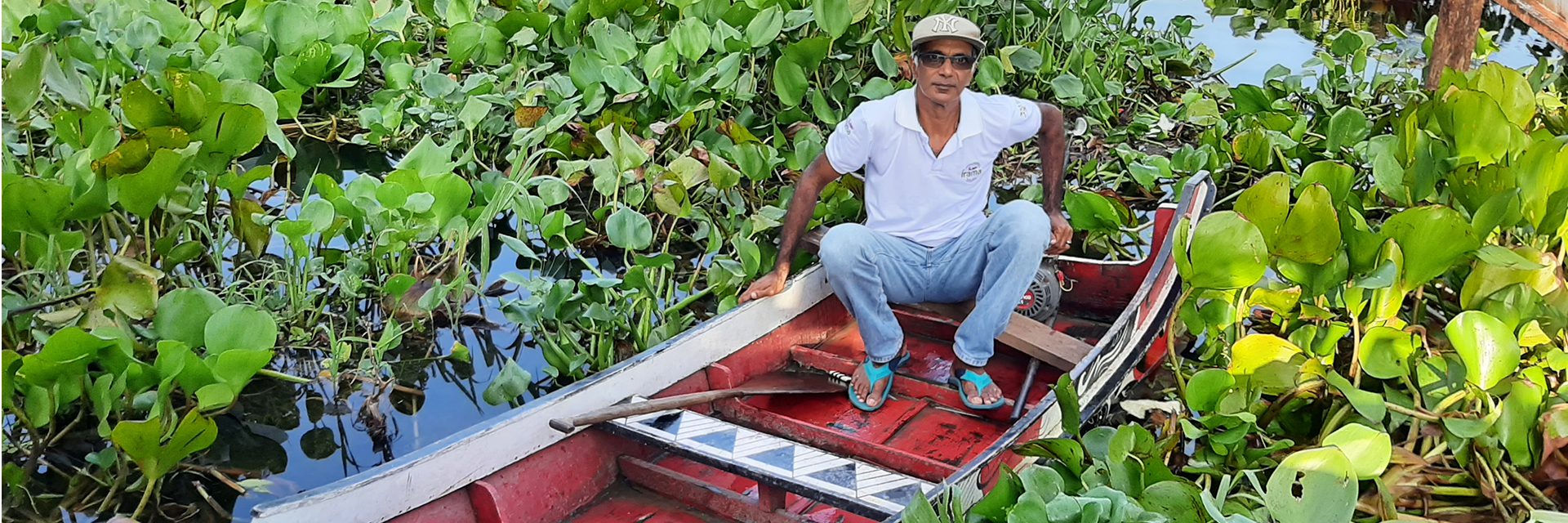
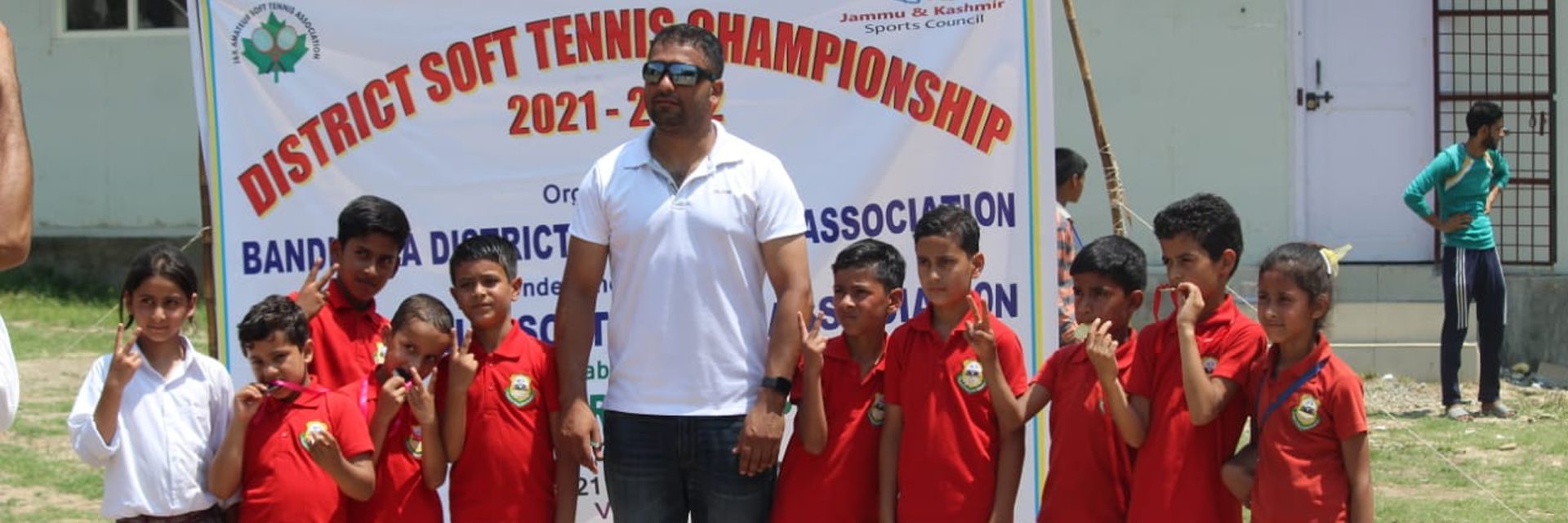

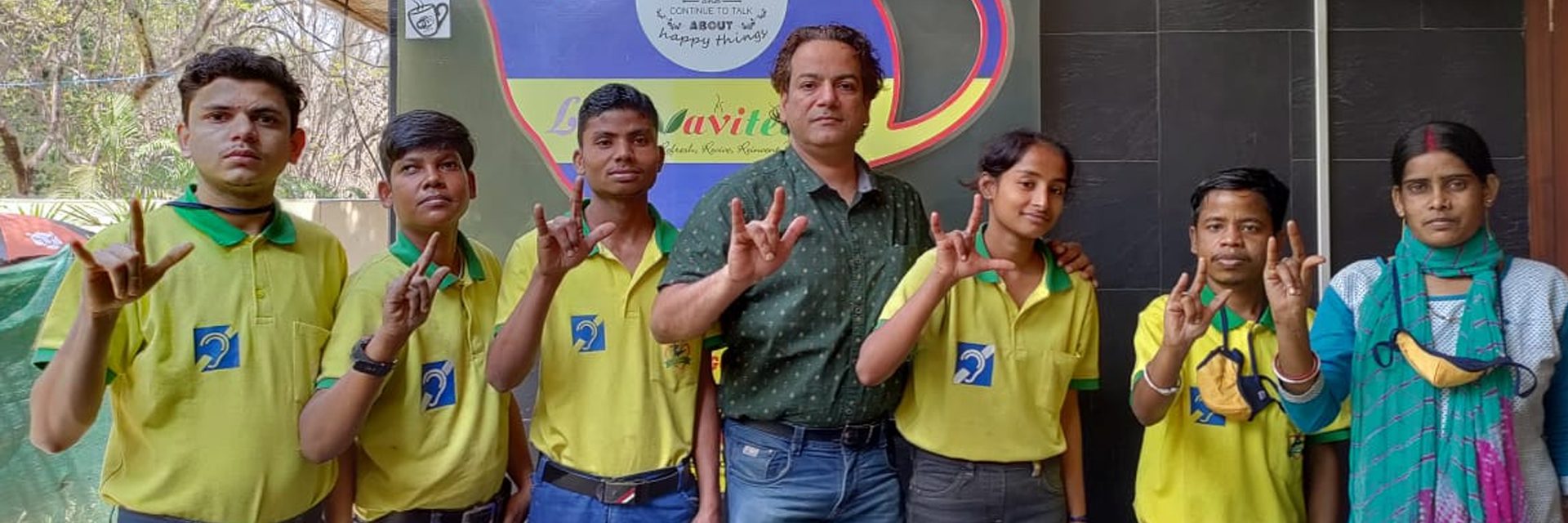
Good job
Wonderful story and human touch